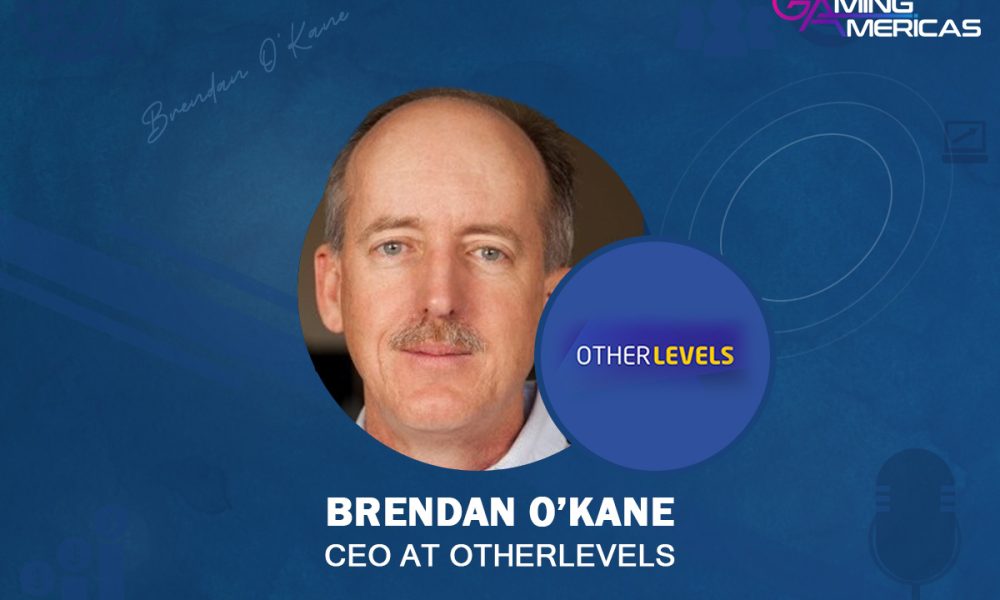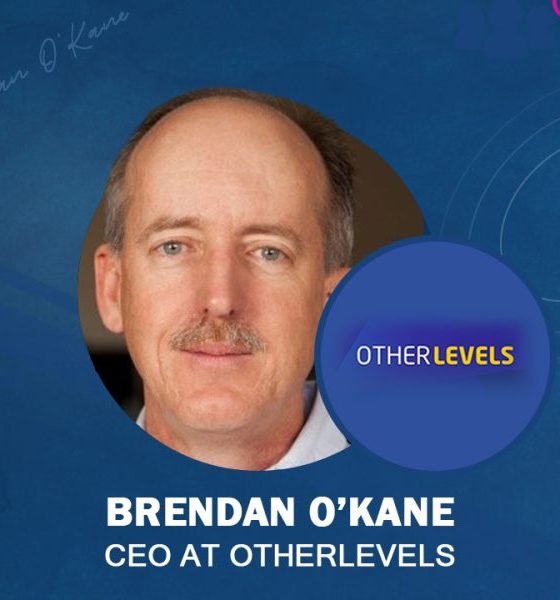

Brendan O’Kane CEO at OtherLevels
The missing link: Transforming available data into hyper-relevant activation and engagement
Brendan O’Kane, CEO at OtherLevels, reveals how transforming data into more relevant and sophisticated communications is hugely successful at activating and engaging customers.
Fewer than 100 days out from the start of the new NFL season, sportsbooks will be planning their marketing strategies to maximize the engagement opportunities that the season brings.
A month after the Philadelphia Eagles go up against the Dallas Cowboys, the NBA season also gets underway. Both landmark dates will long since have been picked out by sportsbook marketing teams as hooks to reactivate existing customers.
However, OtherLevels recent research shows that a reliance on mass seasonal campaigns not only risks missing the target in terms of engagement and activation, but can actively alienate customers. Modern, digital-first customers are smart and savvy – and they see through and ignore generic communications.
Our findings showed that seasonal campaigning, driven by high-profile sports, is over-prioritised with individual customer behaviors and preferences heavily under-utilized. The study also highlighted a common gap where raw behavioral data – which all operators have access to – is not transformed into sophisticated content and media.
Activation and Engagement
To determine how effectively one of the leading US-based sportsbooks was creating relevant communications for its customers, we conducted a two-month study of mobile engagement using the app push channel. The premise behind the research was that personalized, relevant and contextual communications lift activation and engagement in sports betting.
Our research team tracked two consistent customers who placed a total of 228 similar wagers on NFL, NBA, NHL, and EPL events. Both customers consistently bet on the same teams and props with consistent cash values.
Our expectation was that the sportsbook would leverage the repeated, predictable behaviour to tailor personalized communications.
The results, however, showed a significant lack of personalization. Despite both of our users exclusively betting on professional football, basketball, soccer and hockey, 29% of communications failed to mention any of these sports.
A total of 23% of messages promoted college football or basketball, which neither customer had ever wagered on. Soccer, which accounted for 19% of total bets placed, featured in only 1% of communications.
A mere 7% of communications contained token personalization – most of which was attribute-based (customer name or location), with 93% completely lacking behavioral personalization. Crucially, the operator failed to use betting behavior to tailor content related to preferred teams, props, markets, or odds changes.
The research showed that there is a significant disconnect between what we expected in terms of personalized communications and what was delivered. It uncovers a prevalent challenge within the industry: the disparity between the availability of customer data and how to transform this into compelling content and media, suitable for use by a (generic) CRM platform.
To create campaigns that are more effective, customer data needs to be transformed into content and activation needs to be automated. This is not trivial – a personalization engine does not create content, it outputs a JSON data recommendation. Automation is equally challenging. Take the NBA as an example: given that there are over 1,300 games, without an automated content and media creation capability built for 24/7 sports, there is a fundamental gap between personalization recommendations and an exciting, in the moment, customer experience. A marketing team relying on a generic CRM platform, lacks the automated content capabilities to create sophisticated sports content and CTAs.
Customer-centric
At OtherLevels, our Experience Platform fills that gap. It combines operator or 3rd party personalized recommendations, live odds, historical betting behaviour, and match context to create 100% automated, hyper-personalized CTA communications, for delivery by existing marTech platforms.
The positive results of this approach are clear to see. For two of the operators we work with, this customer-centric approach to marketing communications resulted in a 16% uplift in engagement across the NBA last season, an 8% lift from NFL for outbound communications and a 30% increase in on-site interaction for sophisticated NFL content.
When sportsbooks gear up for major seasons like the NFL and NBA, a default reliance on traditional CRM platforms that cannot create compelling sport content at scale leads to suboptimal engagement and risks alienating customers.
Conversely, adopting a customer-centric approach that leverages betting behavior and an automated, cutting-edge content and media engine, creates automated, hyper-personalized communications. This approach has been shown to dramatically increase activation and engagement, highlighting a clear next step for more effective sportsbook marketing.
The post The missing link: Transforming available data into hyper-relevant activation and engagement appeared first on Gaming and Gambling Industry in the Americas.
-

 gaming3 years ago
gaming3 years agoODIN by 4Players: Immersive, state-of-the-art in-game audio launches into the next generation of gaming
-
EEG iGaming Directory8 years ago
iSoftBet continues to grow with new release Forest Mania
-
News7 years ago
Softbroke collaborates with Asia Live Tech for the expansion of the service line in the igaming market
-
News7 years ago
Super Bowl LIII: NFL Fans Can Bet on the #1 Sportsbook Review Site Betting-Super-Bowl.com, Providing Free Unbiased and Trusted News, Picks and Predictions
-
iGaming Industry8 years ago
Rick Meitzler appointed to the Indian Gaming Magazine Advisory Board for 2018
-
News7 years ago
REVEALED: Top eSports players set to earn $3.2 million in 2019
-
iGaming Industry8 years ago
French Senator raises Loot Boxes to France’s Gambling Regulator
-
News7 years ago
Exclusive Interview with Miklos Handa (Founder of the email marketing solutions, “MailMike.net”), speaker at Vienna International Gaming Expo 2018








